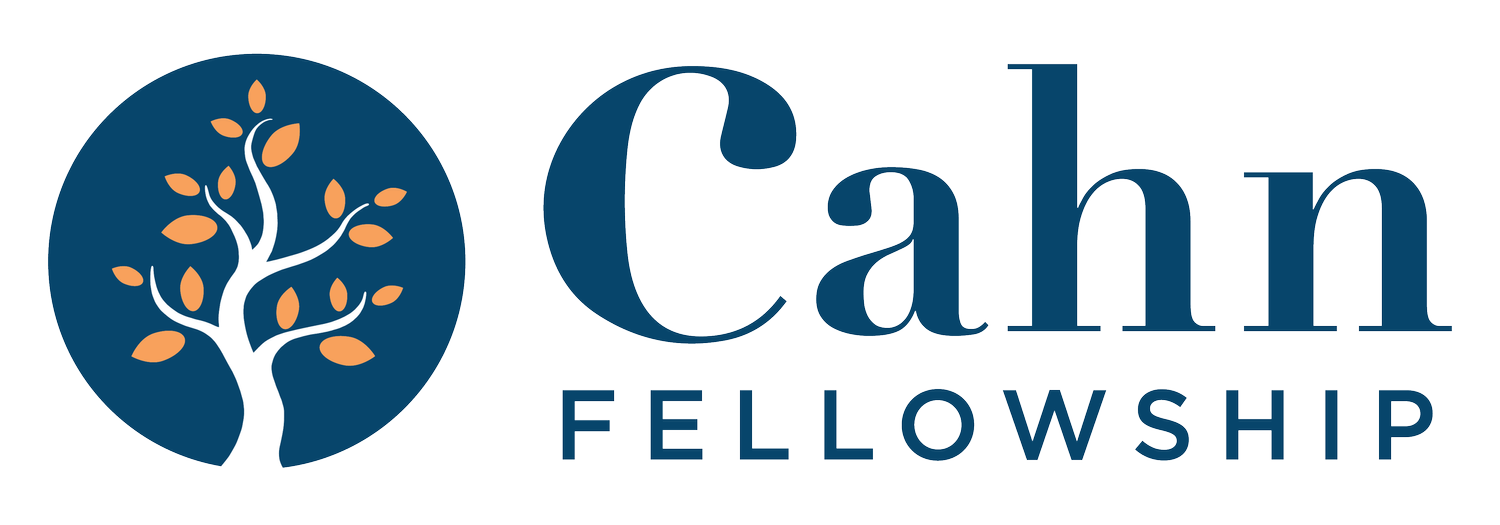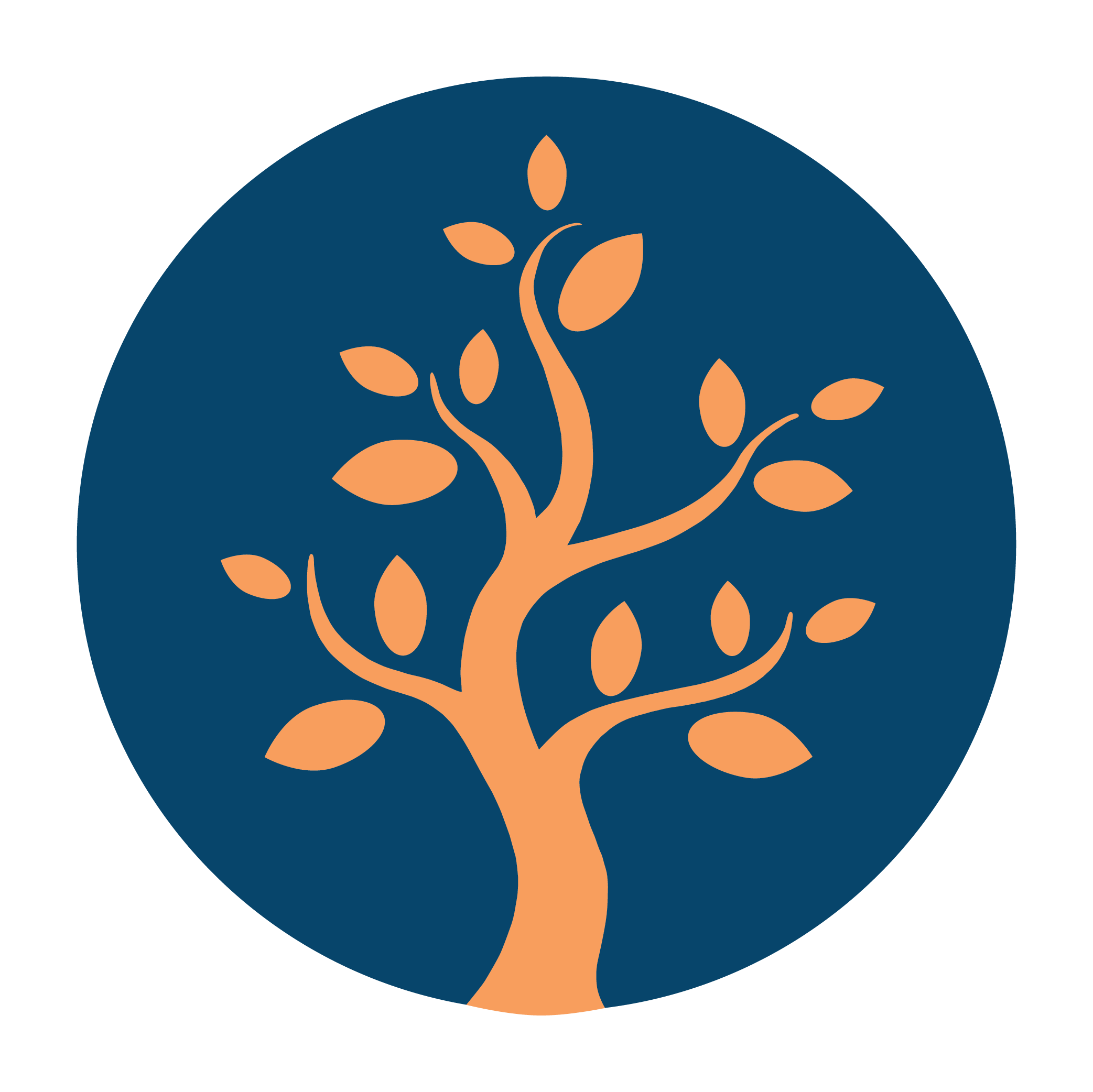
Cahn Distinguished Principals Fellowship
Cahn Fellowship keeps excellent principals longer. Since 2003, we have delivered our program to high-performing principals across the country. We have participation from principals and aspiring leaders in Atlanta, Boston, Chicago, Cleveland, Denver, Houston, Los Angeles, Miami, New York City, San Antonio, Tampa and DC metro areas. We provide participants with advanced leadership, nationwide networking, intercity school visitations and the opportunity to gain perspectives from other school districts in solving challenging issues.
Inspiring the most driven school leaders to fulfill their potential, so they can further improve their schools.
Curriculum
CURRICULUM-TO-MISSION CONNECTIONS
Cahn Fellowship provides advanced leadership development and recognition in large metropolitan areas to strong, talented school leaders to improve public education.
-
The leadership content delivered by the Teachers College Faculty and guest speakers throughout the course of the year focuses on:
Internal capacity for change: During the course of the year Fellows and Allies discover that while personal thinking preferences and strengths can help in certain situations, they can also inhibit outcomes in others. They learn how to understand each other’s personal preferences and strengths and the impact those factors have on decision making, communicating and managing thereby improving their effectiveness in working together. Aligned with this are lessons in defining goals and inspiring leadership through communication, having difficult conversations and “knowing” how others perceive their messages. Fellows learn what their personal communication styles are, how they may differ from those they lead, and what tools they need to employ to motivate their teams effectively. Once leaders know their personal communication styles and others’ “ways of knowing” they can better understand point of view, anticipate problems and manage effectively. As part of this learning Fellows identify a real-life problem that requires a difficult conversation and participate in a videotaped role-play of that conversation which when analyzed provides an awareness of strategies for improvement. Teachers College faculty and Guest Speakers provide the content for building an internal capacity for change.
Recognizing growth in leadership: Throughout the yearlong study sessions, Fellows and Allies develop the necessary skills to lead from the lens of adult developmental learning theory. Content delivery on adult development links the skills learned about their own internal capacity to change with methods for understanding how to work with adults. From a psychological/cognitive framework Fellows and Allies learn about how internal developmental processes lead to building internal capacity and achieving goals. By actively constructing knowledge and leading others to do so Fellows and Allies learn how to recognize their leadership growth through critical reflection and developmental feedback. TC faculty member Dr. Ellie Drago-Severson builds on this curriculum beginning with her sessions on shaping positive school climate and supporting teachers’ learning followed by her sessions on developing an improvement goal and throughout the year in her lessons on leading change together.
Using leadership to build capacity: Our curriculum provides for experiential learning that includes a visit to Gettysburg and a series of Study Summits designed to enhance leadership skills for both the Fellow and the Ally. During our visit to Gettysburg, Fellows experience the lens of leadership from the “battlefield” — an analogy for those in educational leadership. In this portion of our program Fellows are introduced to lessons about decision-making “on the ground” and how those decisions are related to the consequences that follow. A distinction between distributed leadership, servant leadership and autocratic leadership are explored and aligned with situations in which different leadership styles need to be employed. Another significant component of the curriculum focuses leaders on building capacity. This begins when the Fellow selects an aspiring leader, the Ally, to be part of The Cahn Fellows Programs. Throughout the year Fellows and Allies work and learn together in study sessions conducted by TC faculty Ellie Drago-Severson, Carolyn Riehl, Brian Perkins and Jeff Young and distinguished Guest Speakers. Each Fellow/Ally team is also supported by our Alumni Advisors who provide feedback on how to use learned skills to motivate their teams towards systemic change.
Responding to system challenges: Understanding the challenges and stressor of being a Principal, our Fellows are taught about emotional wellness, the content of which was derived from the work of various experts in the field. The goal of this work, led by Barbara McKeon, is to help leaders identify their own ‘burn-out’ risk factors, learn how to manage stressors, evaluate actions, observe attitudes and seek support.
Exploring unintended biases: Every leader is faced with systems changes beyond their control. These are often products of political, cultural and social climate changes. Our responsive curriculum is designed to address the issues facing leaders today and is therefore flexible in design. Experts in the field provide curriculum in implicit bias, ethics, diversity, inclusion and equity. During these courses Fellows and Allies explore their own unintended biases, explore identify, learn to understand differences from the lens of diversity and challenge their own and others biases. These sessions explore the challenges that school leaders face that are beyond academic achievement and performance.
-
Despite the complex challenges of leading schools in the 21st century, principals work largely in isolation and receive few opportunities for professional development. Experience with a supportive community of fellow principals is quite rare. Most principals receive training, are certified, and then become full-fledged school leaders, without systems of ongoing learning or support. And, often the original training can be lacking.
The Cahn Fellows Theory of Action states that if the program engages principals in a collaborative network of peers, increases their ability to build capacity and improves teacher effectiveness and school culture then we will both extend the retention of the strongest principals and develop a pool of future leaders that will ultimately impact student achievement. Our logic model focuses on the need for growth opportunities for high performing principals. Successful principals often lack opportunities to engage in their own development in a safe, supportive environment with their peers. Knowing that there are multiple factors involved in principal retention we have focused all of our curricular efforts on creating a professional development model that values the work, celebrates the successes and guides leadership to the next level. Thus, all of our efforts are focused on helping these leaders believe in their worth by providing them with a high-quality rigorous curriculum in a quality learning environment where they are free to expose their vulnerabilities and develop a network of leaders from other cities in a judgment-free environment. Additionally, we offer wellness opportunities and instruction for a balanced professional and personal life.
We know from research that we risk losing our best leaders without this recognition, professional and social networking opportunities and balance. Neale, E., & Cone, M. (2013). Strong principal networks influence school culture. The Learning Principal, 8(3), 01-05. Retrieved from www.learningforward.org
The action inquiry component of our curriculum is directly related to both building capacity and retention. We ask our leaders to identify a problem of practice and then, through the work of distinguished guest speakers, they learn how to develop a theory of action, use reflective questioning techniques, hone the problem of practice, reflect on the impact that this problem has on climate, culture and achievement and identify benchmark data that will result in an action inquiry project and a narrative report. The underlying inquiry question for these leaders is “how will looking at this problem provide you with an opportunity to grow as a leader and build capacity in your school community?” We have evidence from our Fellows that empowering them to identify personal goals, professional growth and build capacity supports retention.
-
It turns out that leadership not only matters: it is second only to teaching among school-related factors in its impact on student learning. — The Wallace Foundation.
The curricular emphasis on student outcomes is guided by the work done leading up to the final project. Once a problem of practice is finalized the Fellow/Ally teams work in small groups with their Alumni Advisors and TC faculty on creating an action-inquiry cycle plan that includes initial conditions, benchmark and assessment data, achievement goals and outcome monitoring. Fellow/Ally teams dive deeper into root cause analysis as part of this process and engage the larger school community in planning. The written narrative report is divided into 7 sections, each aligned with the curriculum being taught. Draft sections are submitted to the Alumni Advisor teams and discussed for quality and content. This writing component of our curriculum is an important skill for leaders who are considering enrolling in doctorate level work.
Our content is aligned with our mission, theory of action and logic model in a way that differentiates us from other leadership programs:
Our focus is on the highest performing principals.
Our approach to building capacity by engaging Allies in the work is unmatched in any other program. Building this component of our program by increasing Ally participation ensures that aspiring leaders are receiving advanced learning and builds a larger alumni pipeline as they secure leadership positions.
Developing a network of strong principal and aspiring leader peers increases the likelihood that the most successful leaders will remain in their roles longer. Our national approach to building a network of leaders is unmatched by any other program. We need to ensure that our NYC leaders receive the same level of engagement as those in our expansion cities to build that important network.
Increasing the number of professionals in the field of leadership to include both private companies and distinguished university faculty from other institutions will provide our participants with a variety of leadership perspectives in the advanced professional development we offer.
Our Alumni Advisor model is unmatched. This model continues to invigorate and retain principals long after they have completed their Cahn Fellowship year as it continues to recognize their value as leaders while engaging them in the knowledge they gain while in our program: working with adults, providing feedback and offering mentorship.
In their capacity as Cahn Fellows and Allies, school leaders are asked to identify a leadership challenge they are facing in their schools which they believe, when effectively addressed, will have a positive impact on student achievement, school culture and/school leadership capacity, as well as a positive impact on their own leadership potential. Each year, Fellows and Allies are asked to independently choose their leadership challenge and engage their school community in the change process.
Throughout the year Fellows and Allies convene in collaborative teams on multiple days across cities where they have opportunities to learn from their peers, expand their leadership skills and enhance their knowledge. Each group is led by a Cahn Alumni Advisor.
Study Summits
Study groups focus on topics that include:
building trust in the school community,
adult development and teacher leadership,
meeting the needs of diverse learners,
improving on the communication of the school’s mission and vision,
closing the achievement gap,
diversity and equity, and
school culture, and
systems thinking and leading from wellness.

There are 4 unique components to our program:
1. We build capacity and succession planning as our Fellows select their Allies (aspiring leaders) who learn alongside them.
2. Our evidence-based authentic Problem of Practice drives the learning acting as the change agent in each school community.
3. Fellow/Ally teams are assigned an Alumni Advisor who acts as mentor and coach throughout the learning process.
4. We select distinguished principals who have at minimum 5 years of experience.

Leadership Challenges
The focus on authentic challenges and measurable results within the Cahn Professional Development Model allows our Fellows and their Allies to more readily apply academic research to practice and take an active approach to their learning.
Once their problem of practice has been identified, the Fellows are asked the following questions:
What evidence can you point to that the challenge exists? What are the present-day indicators?
Why do you think this challenge exists? Potential hypotheses?
If you were successful in addressing your challenge, what changes would you observe in your school? What would visitors to your school see?
How is this work impacting or changing me as a school leader?
Fellows and their Allies are asked to set qualitative and quantitative benchmarks to help them measure their progress against their stated challenge throughout the school year and to submit a self-reflection at key points during the year. To successfully complete the program Fellows and Allies present their findings at our Annual Leadership Conference and submit a final narrative report detailing their yearlong work.
2023 Annual Leadership Conference Keynote
Will Miller
President of the Wallace Foundation

Presentations
Annual Leadership Conference
Our Annual Leadership Conference provides Fellows and Allies the experience of sharing their yearlong work with the larger educational community through presenting their findings. Following are links to videos of these presentations. Our hope is that the larger educational community will find this work informative and enlightening far beyond the schools of our Cahn Fellows.
PAST LEADERSHIP CONFERENCE VIDEOS


